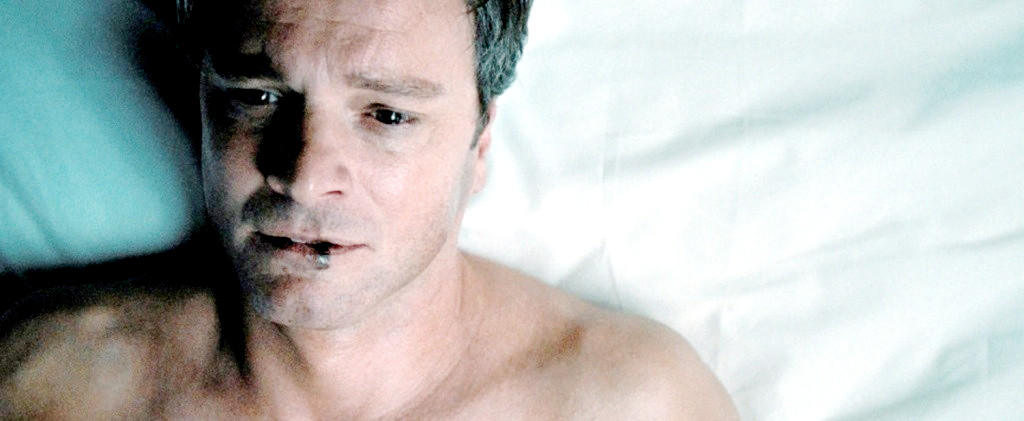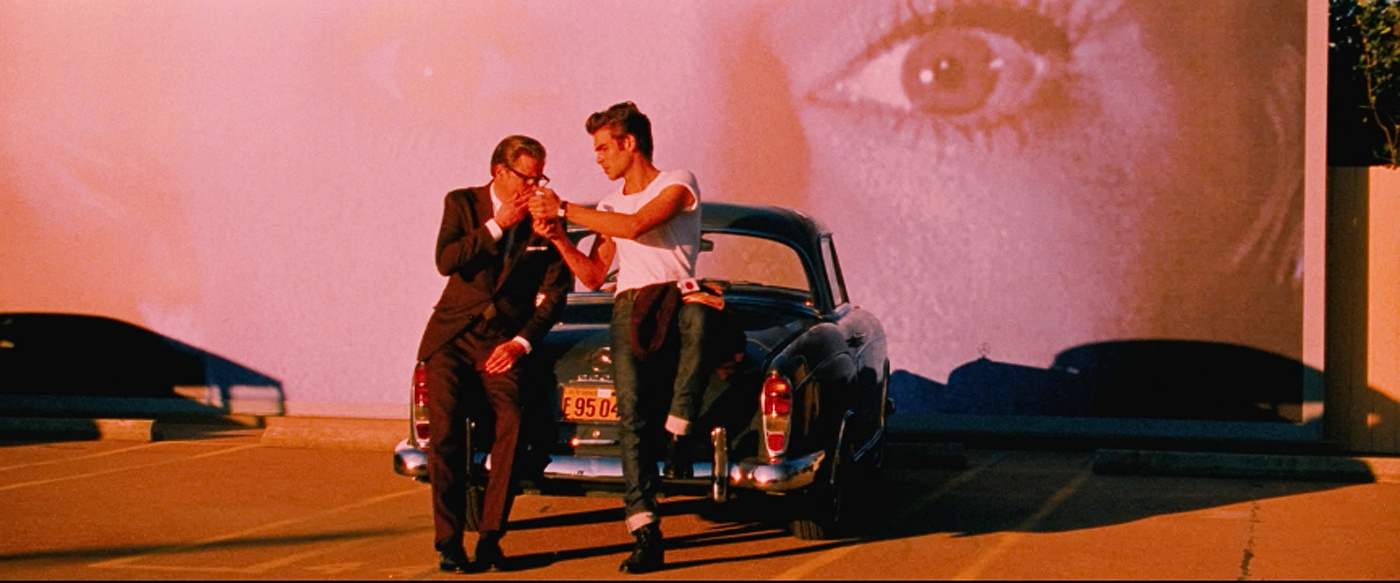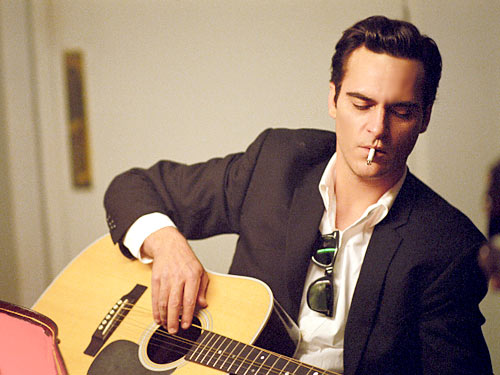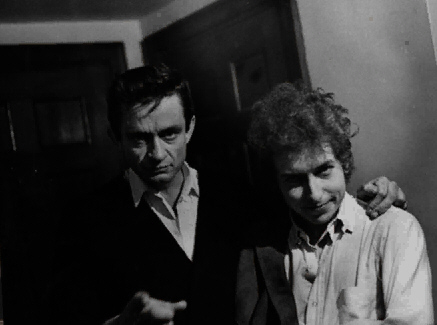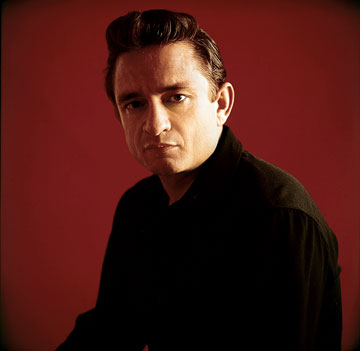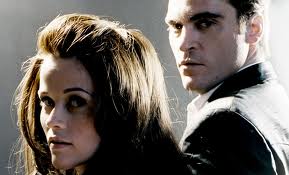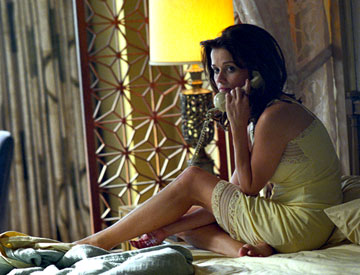Happy New Year’s Eve to everyone..I’m celebrating in San Diego with old college friends and likely won’t update again until 2006. So, without further ado, here’s the 2005 movie round-up. Overall, it’s been a pretty solid year for cinema, and this is the first year in the past five where the #1 movie wasn’t immediately obvious to me. But, still, choices had to be made, and so…
Top 20 Films of 2005
[2000/2001/2002/2003/2004]
[Note: The #1 movie of 2005 changed in early 2006: See the Best of 2006 list for the update…]
1. Syriana: I know Stephen Gaghan’s grim meditation on the global reach and ruthlessness of the Oil Trade rubbed some people the wrong way, but I found it a gripping piece of 21st century muckraking, in the venerable tradition of Ida Tarbell and Upton Sinclair. True, Christopher Plummer was a mite too sinister, but otherwise Syriana offered some of the most intriguing character arcs of the year, from morose CIA Field Agent George Clooney’s ambivalent awakening to corporate lawyer Jeffrey Wright’s courtship with compromise. In a year of well-made political films, among them Good Night, and Good Luck, Munich, Lord of War, and The Constant Gardener, Syriana was the pick of the litter.
2. Layer Cake: If X3 turns into the fiasco the fanboy nation is expecting with Brett Ratner at the helm, this expertly-crafted crime noir by Matthew Vaughn will cut that much deeper. Layer Cake not only outdid Guy Ritchie’s brit-gangster oeuvre in wit and elegance and offered great supporting turns by Michael Gambon, Kenneth Cranham, and Colm Meaney, it proved that Daniel Craig had the requisite charisma for Bond and then some (and that Sienna Miller is no slouch in the charisma department either.)
3. Ballets Russes: Penguins and comedians, to the wings — The lively survivors of the Ballets Russes are now on center stage. Like the best in dance itself, this captivating, transporting documentary was at once of the moment and timeless.
4. Good Night, and Good Luck: Conversely, anchored by David Strathairn’s wry channeling of Edward R. Murrow, George Clooney’s second film (and second appearance on the 2005 list) couldn’t have been more timely. A historical film that in other hands might have come off as dry, preachy edutainment, Good Night, and Good Luck instead seemed as fresh and relevant as the evening news…well, that is, if the news still functioned properly.
5. Batman Begins: The Dark Knight has returned. Yes, the samurai-filled first act ran a bit long and the third-act train derailing needed more oomph. Still, WB and DC’s reboot of the latter’s second biggest franchise was the Caped Crusader movie we’ve all been waiting for. With help from an A-list supporting cast and a Gotham City thankfully devoid of Schumacherian statuary, Chris Nolan and Christian Bale brought both Batman and Bruce Wayne to life as never before, and a Killing Joke-ish Batman 2 is now on the top of my want-to-see list.
6. Harry Potter and the Goblet of Fire: As I said in my original review, I initally thought Cuaron’s Azkhaban couldn’t be topped. But give Mike Newell credit: Harry’s foray into Voldemortish gloom and teenage angst was easily the most compelling Potter film so far. Extra points to Gryffindor for Brendan Gleeson’s more-than-slightly-bent Mad-Eye Moody, and to Slytherin for Ralph Fiennes’ serpentine cameo as He-Who-Must-Not-Be-Named.
7. King Kong: I had this film as high as #2 for awhile, and there are visual marvels therein that no other movie this year came close to offering, most notably Kong loose in Depression-Era New York City. But, there’s no way around it — even given all the B-movie thrills and great-ape-empathizing that PJ offers in the last 120 minutes, the first hour is close to terrible, which has to knock the gorilla down a few notches.
8. Capote: When it comes to amorality for artistry’s sake, Jack Black’s Carl Denham ain’t got nothing on Philip Seymour Hoffman’s Truman Capote. I think it’d be awhile before I want to watch this movie again, but, still, it was a dark, memorable trip into bleeding Kansas and the writerly id.
9. Sin City: One of the most faithful comic-to-film adaptations on celluloid also made for one of the more engaging and visually arresting cinematic trips this year. I don’t know if the look and feel of Sin City can sustain a bona fide franchise, but this first outing was a surprisingly worthwhile film experience (with particular kudos for Mickey Rourke’s Marv.)
10. Munich: I wrote about this one at length very recently, so I’ll defer to the original review.
11. Brokeback Mountain: A beautifully shot and beautifully told love story, although admittedly Ang Lee’s staid Brokeback at times feels like transparent Oscar bait.
12. Lord of War: Anchored by Nicholas Cage’s wry voiceover, Andrew Niccol’s sardonic expose of the arms trade was the funniest of this year’s global message films (That is, if you like ’em served up cold.)
13. The Squid and the Whale: Speaking of which, The Squid and the Whale made ugly, embittered divorce about as funny as ever it’s likely to get, thanks to Jeff Daniels’ turn as the pretentious, haunted Bernard Berkman.
14. Star Wars Episode III: Revenge of the Sith: Thank the Force for small kindnesses: George Lucas put the Star Wars universe to bed with far and away his best outing of the prequels. The film flirts dangerously with the Dark Side, particularly in the “let’s take a meeting” second act, but for the most part Sith felt — finally — like a return to that galaxy long ago and far, far away.
15. A History of Violence: I think David Cronenberg’s most recent take on vigilantism and misplaced identity was slightly overrated by most critics — When you get down to it, the film was pretty straightforward in its doling out of violent fates to those who most deserved them. Still, solid performances and Cronenberg’s mordant humor still made for a far-better-than-average night at the movies.
16. Walk the Line: Despite the great performances by Joaquin Phoenix and Reese Witherspoon, Walk the Line ultimately seemed too much of a by-the-numbers biopic to do the Man in Black full credit. But, definitely worth seeing.
17. In Good Company (2004): Paul Weitz’s sweet folktale of synergy, downsizing, and corporate obsolescence was too charitable and good-natured to think ill of any of its characters, and I usually prefer more mordant fare. Nevertheless, the intelligently-written IGC turned out to be a quality piece of breezy pop filmmaking.
18. The Constant Gardener: Another very good film that I still thought was slightly overrated by the critics, Fernando Meirelles’ sophomore outing skillfully masked its somewhat iffy script with lush cinematography and choice Soderberghian editing.
19. Primer (2004): A completely inscrutable sci-fi tone poem on the perils of time travel. Kevin and I saw it twice and still have very little clue as to what’s going most of the time — but I (we?) mean that in the best way possible.
20. The Chronicles of Narnia: The Lion, the Witch, and the Wardrobe: The Chronic-what? Andrew Adamson’s retelling of C.S. Lewis’s most popular tome lagged in places, and the two older kids were outfitted with unwieldy character arcs that often stopped the film dead, but it still felt surprisingly faithful to the spirit of Narnia, Christianized lion and all.
Most Disappointing: The Fantastic Four, which I finally saw on the plane yesterday — One of Marvel’s A-List properties is given the straight-to-video treatment. From the Mr. Fantastic bathroom humor to the complete evisceration of Dr. Doom, this movie turned out just as uninspired and embarrassing as the trailers suggested. Runner-Up: The Brothers Grimm. Terry Gilliam’s long-awaited return wasn’t exactly a return-to-form. But, hey, at least he got a movie made, and Tideland is just around the corner.
Most Variable: Hitchhiker’s Guide to the Galaxy: I still haven’t figured out how I feel about this one. I liked it quite a bit upon first viewing, but it didn’t hold up at all the second time around. Still, the casting feels right, and I’d be up for The Restaurant at the End of the Universe, provided they turn up the Ford-and-Zaphod shenanigans and turn down the forced Arthur-and-Trillian romance.
Worth a Rental: Constantine, Aliens of the Deep, Me and You and Everyone We Know, Charlie and the Chocolate Factory, The Island, March of the Penguins, The Aristocrats,Tim Burton’s Corpse Bride, Jarhead, Sarah Silverman: Jesus is Magic, The Ice Harvest, War of the Worlds
Ho-Hum: Inside Deep Throat, The Jacket, Million Dollar Baby (2004), The Ring 2, Kingdom of Heaven, Unleashed, Mr. & Mrs. Smith,
Aeon Flux
Best Actor: Philip Seymour Hoffman, Capote; Eric Bana, Munich; Heath Ledger, Brokeback Mountain; David Straitharn, Good Night, and Good Luck
Best Actress: Reese Witherspoon, Walk the Line; Naomi Watts, King Kong
Best Supporting Actor: Jeff Daniels, The Squid and the Whale; George Clooney, Syriana; Brendan Gleeson, Harry Potter and the Goblet of Fire
Best Supporting Actress: Maria Bello, A History of Violence; Tilda Swinton, The Chronicles of Narnia
Unseen: The 40-Year-Old Virgin, Bee Season, Broken Flowers, Cache, Casanova, Cinderella Man, Crash, Enron: The Smartest Guys in the Room, Grizzly Man, Gunner Palace, Head On, Hustle & Flow, Junebug, Match Point, The New World, Nine Lives, Pride and Prejudice, Serenity (although I watched all of Firefly last week), Shopgirl, The Three Burials of Melquiades Estrada, Wallace and Gromit: The Curse of the Were-Rabbit, Wedding Crashers
2006: Frankly, the line-up doesn’t look too exciting at the moment. Nevertheless, 2006 will bring A Scanner Darkly, Casino Royale, The Da Vinci Code, Flags of our Fathers, The Good German, The Inside Man, Marie Antoinette, M:I III, Pirates of the Caribbean 2, Snakes on a Plane (!!), Southland Tales, Superman Returns, Tristam Shandy, V for Vendetta, and X3.
